UN Tourism | Bringing the world closer
Product development.
- Rural tourism
- Gastronomy and Wine Tourism
- Mountain Tourism
- Urban Tourism

Sports Tourism
- Shopping Tourism
share this content
- Share this article on facebook
- Share this article on twitter
- Share this article on linkedin
What it is : Sports tourism is a type of tourism activity which refers to the travel experience of the tourist who either observes as a spectator or actively participates in a sporting event generally involving commercial and non-commercial activities of a competitive nature.
Why it Matters : Sports tourism is a fundamental axis, generating around 10% of the world’s expenditure on tourism. It has an estimated growth rate of 17.5% between 2023-2030, moving masses intra and intercontinentally. Sports tourism can promote social, economic and environmental action, it accelerates development and can leave a long-lasting positive legacy.
Sports and Tourism are interrelated and complementary. Today, sports tourism is one of the fastest-growing sectors in tourism. More and more tourists are interested in sport activities during their trips whether sports are the main objective of travel or not. Sport events of various kinds and sizes attract tourists as participants or spectators and destinations try to add local flavours to them to distinguish themselves and provide authentic local experiences. Mega sport events such as the Olympics and World Cups can be a catalyst for tourism development if successfully leveraged in terms of destination branding, infrastructure development and other economic and social benefits.

Sports Tourism Events

1 st World Sports Tourism Congress

2 nd World Sports Tourism Congress

UN Tourism International Conference on Tourism and Sports

UN Tourism / South Africa International Summit on Tourism, Sport and Mega-events
UPCOMING SPORTS TOURISM EVENTS

3 rd World Sports Tourism Congress (more information coming soon)
UN TOURISM PUBLICATIONS ON SPORTS TOURISM

Sport & Tourism
Sport and Tourism are two driving forces for the promotion and sustainable economic development of tourism destinations. To better understand the links between tourism and sport and to increase the awareness of the benefits of their joint contributions, UN Tourism and the International Olympic Committee (IOC) jointly organized the First World Conference on Sport and Tourism in Barcelona on 22-23 February 2001. This publication contains the studies prepared for the Conference as well as the speeches delivered there.

Sport Tourism and the Sustainable Development Goals (SDGs)
Tourism can contribute to sustainable development and the achievement of the 17 Sustainable Development Goals (SDGs). This overview illustrates how sport tourism can contribute to the SDGs and what needs to be considered when developing sport tourism to ensure its contribution to sustainable development. The comparative strength of sport tourism lies in: Engagement in physical activities; Opportunities for interactions; and High development potential almost anywhere. Thanks to these characteristics, sport tourism can play an important role in achieving various SDGs if developed with consideration.

Maximizing the Benefits of Mega Events for Tourism Development
A mega event benefits a host destination in terms of attracting visitors to the event and drawing global attention to the destination. However, in addition to such short-term benefits, it can be a catalyst for longer-term tourism development in various aspects from economic to social. This publication on Maximizing the Benefits of Mega Events for Tourism Development provides practical references on what a host destination can do to fully leverage the event opportunity for tourism development with a variety of illustrative cases. Although the report refers to insights from mega events, the practical references can be applied to any scale of events in any destination.

Walking Tourism – Promoting Regional Development
Walking tourism is now one of the most popular ways to experience a destination. It allows tourists to better engage with local people, nature and culture. It also meets the growing demand of travellers of outdoor activities in general, including when they travel. Walking tourism can be developed anywhere as a sustainable tourism offer with a relatively small investment. It can bring about social and economic benefits to residents and communities if properly developed and managed. This report showcases various successful examples of walking tourism and aims to serve as a practical reference for destinations with a focus on the role of walking tourism in regional development.

Sports Tourism in Latin America
Tourism and sport are key cultural elements of today’s world and have significant impact on modern society and international tourism. With this in mind, the WTO has carried out a new study aimed at providing a more complete analysis of the role that sports tourism and sports in general among the products offered in Latin America by European tour operators and tourism websites.

Sport and Tourism – Introductory Report
Sport and Tourism have a major socio-economic impact, appreciated in most civilian societies and increasingly recognized by governments. This is one of the many conclusions of this report which was prepared for the First World Conference on Sport and Tourism jointly organized by the International Olympic Committee (IOC) and WTO.After developing a theoretical framework for the system of Sport and Tourism and analysing the future trends of sport and sports tourism this report looks at the different socio-economic impacts of sport and tourism and how they can be managed best.

Sport Activities during the Outbound Holidays of the Germans, the Dutch & the French
The World Tourism Organization (WTO) and the International Olympic Committee (IOC) prepared this study on the level and characteristics of the sport activities engaged in during holidays abroad. Germany, the Netherlands and France were chosen for this study. These countries ranked among the leaders in terms of international tourism expenditure in 1999. Even though this study does not cover all the major generating markets, we are sure that it gives a clear picture of the importance of sport activities in tourism, and it makes many suggestions. This study also deals with many practical aspects, e.g.: length of stay, expenditure, seasonal demand, booking patterns, accommodation, and consumer profiles such as gender, age, social status, and area of residence.

What is sports tourism and why it is so big?
Disclaimer: Some posts on Tourism Teacher may contain affiliate links. If you appreciate this content, you can show your support by making a purchase through these links or by buying me a coffee . Thank you for your support!
Sports tourism is BIG business. We all know that sport tourism involves sporting activity, that much is pretty obvious, but there is much more than a game of sport involved in the multi million Dollar global industry. In this article I will explain what sports tourism is, I will tell you about the different types of sports tourism and I will discuss the benefits of sports tourism.
What is sports tourism?
Sports tourism definitions, sports tourism statistics, football world cup, six nations rugby championship, the olympics, the super bowl, calgary olympic park, maracana football stadium, rio de janiero, barcelona olympic park, tough mudder race, london, martial arts holidays, south korea, surfing holidays, portugal, golf tours, florida, yoga retreats, bali, football fans- manchester united spectators, boxing fans- anthony joshua followers, british & irish lions rugby spectators, australian cricket fans, benefits of sport tourism, sports tourism: conclusion, further reading on sports tourism.
Sports tourism is the act of travelling from one locality to another, with the intention of being in some way involved with a sporting activity or event .
Many people believe that sports tourism relates only to watching a sporting event. However, this is not correct. The sports industry is much more than this.
Sports tourism encompasses travelling for your own sporting purposes, such as a yoga teacher training course, a badminton competition or to learn to surf. Sports tourism includes attending sporting events such as a Formula One race or a Premiership football match. Sports tourism includes nostalgic visits to places of historical importance, such as the Olympic stadium in Barcelona or to see memorabilia related to your favourite sporting hero, such as the museum at the Maracana football stadium in Rio de Janeiro.
There are, in fact, four main types of sport tourism. These types are known as:
- Sport Event Tourism
- Active Sport Tourism
- Nostalgia Sport Tourism
Passive sports tourism
While sports tourism has not always been extremely popular, during the recent decade the amount of people attending out of area sporting events has drastically increased. People are now traveling far and wide just to attend their favorite events, and it is no wonder as to what has encouraged the sudden spike in popularity.

Sport tourism is a relatively new concept, although it has been around for a long time.
There are many academic studies which delve into the concept of sports tourism, particularly sports tourism that involves large sporting events, such as the football World Cup or the Olympic Games. Some scholars and sports tourism stakeholders have attempted to define the term sports tourism.
According to Neirotti (2003), sports tourism can be broadly described as;
‘Including travel away from one’s primary residence to participate in sports activity, for recreation or competition purposes, travel to observe sport at grassroots or elite level, and travel to visit a sports attraction such as a sports museum, for instance’.
Weed and Bull (2004), provide a conceptualisation of the sports tourism phenomenon as;
‘A social, economic and cultural phenomenon arising from the unique interaction of activity, people and place’’.
Gammon and Robinson (2003) state that sports and tourism is;
‘Not just about the management and operation of mega events; it also concerns offering consumer-specific sports and tourism-related services and experiences to the sports tourist.’

Read also: Sustainable tourism- everything you need to know
Gammon and Robinson (2003) further argue that the sports tourism industry cannot be defined easily and that there should be different definitions according to the type of sports tourism that is being discussed. They visualise this in the model below.

Today, sport is regarded as the world’s largest social phenomenon. And, tourism is predicted to become the world’s biggest industry early in the next century. So it doesn’t take a genius to work out that sports tourism is pretty big business!
The sports tourism industry has grown considerably in recent years. In 2016 the sports tourism industry was worth $1.41 trillion and this figure is expected to increase to approximately $5.72 trillion by 2021. This is a whopping 41% growth in only four years!
**Studying sports tourism? I recommend- Sports Tourism: Participants, Policy and Providers **
The sports tourism industry makes up a significant part off the overall tourism industry. Some people claim that this figure is as high as 25%, meaning that a quarter of all tourism in the world is sports related!
The importance of sports tourism is further emphasised by the media statements from the World Tourism Organisation (WTO) and the International Olympic Committee (IOC), which in 2004, announced their commitment to reinforce their partnerships on collaboration in the sports and tourism domain. They stated that;
‘Tourism and sport are interrelated and complementary… both are powerful forces for development, stimulating investment in infrastructure projects such as airports, roads, stadiums, sporting complexes and restaurant-projects that can be enjoyed by the local population as well as tourists who come to use them.
This demonstrates that sports tourism has a wider economic and social impact than simply the sporting occasion itself. It provides social and economic opportunities for the local population , as well as visitors to the area.
The different types of sport tourism
Sport tourism can be segregated into four main types: sport event tourism, nostalgia sports tourism, active sports tourism and passive sports tourism. Below I have provided a short explanation of what each type of tourism is, along with some examples.
Sport event tourism
Sports event tourism is tourism which centres around a sporting event. Sporting events can be of any size and importance, however it tends to be the major sporting events which gain the most gravitas.
Hallmark events, such as the Olympics or football World Cup, are important centres for sport event tourism, bringing millions of tourists to the host destination.
Smaller events, such as the Henley Regatta in the United Kingdom or a national tennis competition also clarify as sport event tourism.
An often overlooked example of sport event tourism are amateur sporting events. Events such as regional school competitions, youth sporting leagues and non-profit community based sport events are just a few examples.
Wimbledon, also known as ‘The Championships’ is the oldest tennis tournament in the world. A prestigious sporting event, Wimbledon is often associated with the upper class, where spectators sip sparkling wine and Pimms whilst dressed in their best frocks.
Knowing very little about tennis, I attending Wimbledon a couple of years ago just to experience this famous event, which is an integral part off British heritage!
Dating back to 1877, Wimbledon has been held at the All England Club in Wimbledon, on the outskirts of London, each year. The tennis is played on outdoor grass courts, which is unlike tennis matches played in many other parts of the world.
Wimbledon is one of the four Grand Slam tennis tournaments, the others being the Australian Open, the French Open and the US Open.
The tournament takes place in late June/early July each year.

The football World Cup, known officially as the FIFA World Cup, is an international football tournament held every four years.
The Fédération Internationale de Football Association (FIFA) is the sport’s global governing body. The football consists of mens only teams and boats the most skilled footballers in the world.
Teams must first pass the qualification phase, which takes place over the preceding three years. After this, 32 teams, including the automatically qualifying host nation, compete in the tournament. The World Cup tournament generally lasts about one month.
The Six Nations Championship is an annual international rugby union competition that takes place. It involves what are considered to be the six best nations in terms of rugby in Europe The six nations are:
The Six Nations tournament begins on the first weekend in February each year and finishes with ‘Super Saturday’ on the second or third Saturday in March.
Each team is required to play every other team once (making a total of 15 matches). Each team will play one match at home and one match away from home.
I attended a six nations match once and whilst I’m really not into rugby (surprise!), I really enjoyed the sophisticated and supportive atmosphere at the venue.
Inspired by the ancient Greeks, the modern Olympic Games have been running since 1896. But, in fact, the games have been played in some form or another since long before this date.
The Olympics is perhaps the most famous and the most popular international sporting event. It features both summer and winter sports competitions which take place every four years. Like many other major sporting events, the Olympics are held in a different location each time.
Read also: Slow tourism: Everything you need to know
The Olympics involves thousands of athletes from around the world who compete in a range of different sports, from trampolining to running. Over 200 nations participate in the event.
The Super Bowl is the annual championship of the National Football League (NFL). Based in the Unites States of America, this is the most popular sport tourism event of the year.
Some interesting facts include The Super Bowl being the second-largest day for food consumption in the USA (after Thanksgiving) and the Super Bowl being the most-watched American television broadcast of the year.
Nostalgia sports tourism
Nostalgia sport tourism involves travelling to famous sport-related tourist attractions.
Nostalgia sports tourism may celebrate sports of the past or the present. It may include visiting museums or exhibitions, visiting sporting hall of fames or visiting sporting venues.
The nostalgia sports tourist does not need to be actively participating in sport or to be spectating. They may simply want to learn more or to reminisce.
Here are some examples of popular nostalgia sport tourism attractions.
We visited Calgary Olympic Park on travels through Canada with a baby and loved it!
WinSport’s Canada Olympic Park (COP), (formerly known as Paskapoo Ski Hill) was one of the venues used in the 1988 Winter Olympics. Nowadays, it is open to the general public and iw well known for its ski jumping, bobsleigh and luge.
Whilst we did learn a little bit about the Olympics on our visit here, we actually sent more time on the luge ride than anything else because it was so much fun!

The Maracana is a famous football stadium in Rio de Janeiro, Brazil. The stadium is rich in history and was once the largest stadium in the world.
The stadium was opened in 1950 to host the FIFA World Cup. The venue has seen attendances of 150,000 or more at 26 occasions. Over time terraces were replaced with seating, and after the renovation for the 2014 FIFA World Cup, the Maracana’s original capacity was reduced to 78,838.
Nowadays, it is popular to take a tour to visit the Maracana stadium, like I did when I travelled to Buenos Aires with my friend who is football mad!
The Olympic Village, known in Spanish as La Vila Olímpica del Poblenou is an area in the Sant Martí district of Barcelona, Spain.
The Barcelona Olympic Village was built in the late 1980s and early 1990s in preparation for the 1992 Summer Olympic Games, which were held in Barcelona.
Nowadays, visiting the Barcelona Olympic Village is a popular sports tourism activity undertaken by many tourists visiting Barcelona.
Active sports tourism
Active sports tourism is when a person travels to actively participate in their chosen sport, or when they travel for other reasons, but taking part in sport is an important part of their tourism experience.
Active sports tourists can be segregated into three classifications: The amateur sports tourist; the hobbyist sports tourist and the professional sports tourist.
I would say that I would generally come under the first category. I am an amateur (at best!) at every sport I try my hand at. But, I still like to give it a go! I’ve attempted skiing in Argentina, kayaking in Vietnam and surfing in Costa Rica, to name but a few.
Read also: Business tourism: Everything you need to know
My husband, on the other hand, is usually either a hobbyist sports tourist or a professional sports tourist. He plays for badminton and football teams and loves playing a large number of sports in his free time. He is also a former athlete, having competed for Britain as a trampoline gymnast. As part of this role he travelled around the workload for professional sporting competitions. This qualified him as a professional sports tourist.
There are a large number of active sports that a tourist may choose to get involved with around the world. Here are a few that I have experienced on my travels. But there are sooo many other sports that you can get involved in as a sports tourist!
- Diving in the Galapagos
- Swimming at the Great Barrier Reef
- Playing tennis in Morocco
- Learning archery in Spain
- Going running in France
- Cycling in Amsterdam
- Taking yoga classes in Bali
- Learning tai chi in China
- Kayaking in Vietnam
- Sailing in Australia
- Skiing in Argentina
- Surfing in Costa Rica
- Playing baseball in Boston
- Hand gliding in Rio de Janeiro
- Fishing in The Gambia
- Climbing in Thailand
- Horse riding in Equador
- Walking in Jeju
Here are a few active sports tourism examples:
Did I ever tell you that I completed a Tough Mudder Race? This was a BIG achievement!
Tough Mudder is an endurance event. It is a an obstacle course, originally designed for army training. It is a test of the mind and body.
The race is usually between 10-12 miles in length. It includes a number of obstacles, many of which involve mud! The obstacles often play on common human fears, such as fire, water , electricity and heights.
**Buy now: Sport and Tourism – a recommended textbook for sports studies students!**
Common obstacles include:
- Arctic Enema – Participants plunge into a tank filled with ice water, where they must swim under the water and past an obstacle to the other side.
- Electroshock Therapy – This is where participants will run through a pit of mud where electric wires sway in the air. Participants will often get small electric shocks.
- Funky Monkey – Monkey bars over a pit of cold water. The bars are covered with a mixture of butter and mud.
- The birthing canal- A small, confined space that the participant must crawl through. The upper layer is filled with water so it feels like you are being compressed as you crawl through the tunnel.
Of course, you will need to travel to a Tough Mudder venue to be classified a sports tourism, but many people do!
Many people choose to travel to South Korea for martial arts holidays and Taekwondo-themed events. These might be amateur sports tourists, hobbyist sports tourists or professional sports tourists, depending on the level of involvement and activity type.
Portugal is a popular destination for surf holidays. You can go it alone, if you have the skills and ‘know-how’, or you can book a tour. There are a number of tour operator who offer specialised surfing holidays for all levels of sports tourists, ranging from beginner to advanced.
There are several golfing hotspots around the world. One of the most popular places to travel to for a golfing holiday is Florida . With its year-round pleasant weather and large open spaces, Florida welcomes golf tourists from all over the world to play on their first-class golf courses.
There are many parts of Asia that are known for the popularity of yoga. However, done attracts so many tourists as Bali. Bali is famous the world over for offering top quality yoga retreats and yoga teacher training courses.
Lastly, it is important to recognise that whilst sport is inherently active , not all those who participate or who are involved with the sport are themselves active. In fact, passive tourists can actually contribute more to the sport than those who are active!
A passive sports tourist is a person who is not actively participating in the sport. They are spectators or fans. Passive sports tourism involves tourists watching sport being played. This could take place at a major sporting event (qualifying this also as sports event tourism), or they could simply be supporting a family member of friend. Most passive sports tourists are fans.
Football, or soccer, is arguably the most well-known and popular sports in the world.
Manchester United is a particularly famous football club. It is estimated by the BBC that Manchester United has a whopping 659million football fans!
I always find is fascinating when I travel to a country that is so different and so far removed from my own, yet the locals are also quick to ask me about Manchester United!
Many sports tourists will follow Manchester United, or which ever football team is their favourite, around the world to watch their games.
Anthony Joshua is a British professional boxer. He has many millions of followers, both from the UK and abroad.
Anthony is a two-time unified heavyweight champion, having held the WBA (Super), IBF, WBO, and IBO titles since December 2019, and previously between 2016 and June 2019. At regional level, he held the British and Commonwealth heavyweight titles from 2014 to 2016.
Anthony Joshua participates in fights around the world and is often accompanies by his passive sports tourism supporters.
The British & Irish Lions is a rugby union team selected from players eligible for any of the Home Nations – the national teams of England, Scotland, Wales and Ireland.
If rugby is your thing and your from Britain or Ireland, then this is a pretty big deal.
The Lions have many thousands of passive sports tourism supporters who cheat them on each match.
Cricket is pretty big in Australia. So big, in fact, that the Australian cricket team has an estimated 24million supporters! Many of these supporters travel with the team around the world as passive sports tourists.
As with any type of tourism , there are a range of benefits and advantages of sports tourism. Whilst the most obvious is perhaps the economic advantage of tourism , there are also positive social impacts as well as environmental impacts . Below I provide some examples:
- Sports encourages tourists to visit the area
- Sports tourism creates economic growth through tourists booking hotel rooms, eating in restaurants and opening money in local shops
- Sports tourism helps to create exposure and enhances a positive image for the local community
- Many sports tourism infrastructures and facilities can also be used by members of the host community
- The development of sports tourism helps to build a sense of community
- Sports tourism has the potential to attract high-yield visitors and repeat visitors
- It can provide opportunity to develop new infrastructure in the area
- The media can help to promote the destination
- Sports tourism can improve overall tourist numbers
- Money made from sports tourism can be reinvested into the local economy
- Sports tourism creates jobs for local people
- Sports tourism which relies on the natural environment may result in better environmental management and preservation
Whilst there are many positive impacts of sports tourism, however, it is also important that there are a number of negative impacts too. Aspects such as environmental degradation when gold courses, employing foreign rather than local people for major sporting events and locals who feel that their cultural norms are being overlooked (such as not covering your shoulders in the Middle East, for example), are just a few example of negative impacts of sports tourism.
It is clear that sports tourism is big business. Whether its events sports tourism, active sports tourism, nostalgic sports tourism or passive sports tourism, there is a huge market for tourists worldwide. However, as with any type of tourism, sports tourism must be carefully managed to ensure that it is sustainable .
For more information on sports tourism, I recommend the texts below;
- Sports Tourism: Participants, Policy and Providers – explains sports tourism as a social, economic and cultural phenomenon that stems from the unique interaction of activity, people and place.
- Sport Tourism Development – a text book covering the growth and development of sport tourism.
- Sport Tourism Destinations: Issues and Analysis – with contributions from international experts, this book looks at the dramatic effects sports tourism has on the economy and future of tourism destinations.
- Sport and Tourism – This book proposes a groundbreaking theoretical model which explores globalization, mobility and authenticity providing insight into the unique interrelationship that exists in a sport tourism context between activity, people and place.
Liked this article? Click to share!
- Sport + Travel Magazine

What is sports tourism?
According to a market report by Allied Market Research , the global sports tourism industry was pegged at $323.42bn in 2020. However, it is expected to reach $1.8 trillion by 2030, growing at a compound annual growth rate (CAGR) of 16.1% from 2021 to 2030.
The report revealed that by region, Europe and North America held the largest share in 2020 – accounting for nearly two-fifths of the market, due to the presence of a large population and high participation in sports activities. However, the global sports tourism market across Asia-Pacific is projected to register the highest CAGR of 17.7% during the forecast period of 2021 to 2030, owing to increase in sports participation and sports event hosting.
Subscribe to our monthly newsletter
Sports tourism: a fast-growing niche
The sport and travel industries go hand-in-hand. Whether it is fans attending a match or an event, or if it is teams and officials travelling to fixtures or competitions, sports tourism is now a major niche in the travel industry.
It’s not just Fifa World Cups, the Olympics or major events that are driving the sector, but also team travel, school sports and smaller competitions.
Did you know that the global sports industry is estimated to be worth between US$480bn and US$620bn, according to research by A.T. Kearney . Globally, travel and tourism’s direct contribution to GDP was approximately US$4.7trillion in 2020, according to a report by Statista .
UN Tourism describes sports tourism as “one of the fastest growing sectors” in the travel industry. It also states that international sports tourism is worth US$800bn and accounts for 10% of the world’s tourism industry.
Here we look at what sports tourism is and an expert’s view on its impact…

The United Nations’s definition
What UN Tourism said about sports tourism:
“ Sports tourism is a fundamental axis, generating around 10% of the world’s expenditure on tourism. It has an estimated growth rate of 17.5% between 2023-2030, moving masses intra and intercontinentally. Sports tourism can promote social, economic and environmental action, it accelerates development and can leave a long-lasting positive legacy.
“ Sports and Tourism are interrelated and complementary. Today, sports tourism is one of the fastest-growing sectors in tourism. More and more tourists are interested in sport activities during their trips whether sports are the main objective of travel or not. Sport events of various kinds and sizes attract tourists as participants or spectators and destinations try to add local flavours to them to distinguish themselves and provide authentic local experiences. Mega sport events such as the Olympics and World Cups can be a catalyst for tourism development if successfully leveraged in terms of destination branding, infrastructure development and other economic and social benefits.”
Impact of sports tourism
Akis Tsolis, CEO of Active Media Group , organisers of the Navarino Challenge and Santorini Experience in Greece, wrote on gtp.gr :
“Aside from the obvious and vast benefits of travel, sports tourism is great for the economy for one simple reason: it generates economic impact through direct spending into a community. Sports tourism is a rapidly growing niche in the travel/tourism industry. In fact, we at ActiveMedia Group share the belief that it is the fastest growing segment within the travel industry today, generating billions of dollars every year. Sports tourism is a trend that’s not going away and is expected to continue growing.”
The ChatGPT answer to this question…
What is the definition of sports tourism, how does it benefit the economy and what can we expect in the future.
Sports tourism refers to the act of traveling to a destination with the purpose of participating in or watching a sporting event. It involves a wide range of activities, including attending professional sports games, participating in amateur sports tournaments, and visiting sports-related attractions such as museums or stadiums.
Sports tourism can benefit the economy in several ways. Firstly, it generates revenue for local businesses such as hotels, restaurants, and retail stores. Secondly, it creates employment opportunities in the tourism and hospitality industries. Thirdly, it attracts investment in sports infrastructure such as stadiums and training facilities, which can benefit the local community beyond the tourism industry. Additionally, sports tourism can help to promote a destination as a sports hub, which can attract further sporting events and opportunities.
In the future, we can expect sports tourism to continue to grow, driven by the increasing popularity of sports and the ease of travel. Technological advancements such as virtual reality may also create new opportunities for sports tourism, allowing fans to experience sporting events remotely. Additionally, as sustainability becomes an increasingly important factor in tourism, sports tourism may shift towards more eco-friendly practices, such as promoting sustainable transportation and reducing waste.
SPORTS EVENTS CALENDAR
Nashville rock ‘n’ roll running series 2024, 2024 iagto european convention, malaga, 2024 finkstonball baseball and softball festival, austria, tennis grand slam: 2024 french open roland garros, rugby union: 2024 epcr heineken champions cup and challenge cup finals , privacy overview.
How does sport contribute to tourism?

Tourism is one of the world’s most important economic sectors. It allows people to experience the world’s different cultural and natural riches and brings people closer to each other, highlighting our common humanity.
The many important contributions of tourism encouraged the UN World Tourism Organization ( UNWTO ) to institute World Tourism Day, celebrated annually since 1980 on 27 September, to highlight the importance of tourism and its impact on our society.
Tourism and sports
According to UNWTO , tourism is one of the largest and fastest growing economic sectors in the world, while sport is one of the world’s largest social phenomenon. As a professional or leisure activity, sport often involves travel to other places, to play and compete in various destinations. Further, major sporting events, such as the Olympics and various World Cups, have become powerful tourist attractions.
Sports tourism constitutes a large part of the tourism industry, with some sources claiming that a quarter of all tourism in the world is sports-related. Sports tourism includes not only participation in and attending sporting events, but also personal recreational activities.
Statements from the World Tourism Organisation and the International Olympic Committee (IOC) have highlighted the importance of sports tourism; in 2004, the organisations committed to reinforcing their partnership and collaboration in the sports tourism domain, stating :
“Tourism and sport are interrelated and complementary… both are powerful forces for development, stimulating investment in infrastructure projects such as airports, roads, stadiums, sporting complexes and restaurants- projects that can be enjoyed by the local population as well as tourists who come to use them.”
Sports tourism and sustainable development
Tourism is an essential pillar of the 2030 Agenda for Sustainable Development and the Sustainable Development Goals (SDGs), especially goals 8 , 12 , and 14 . As a segment of tourism, sports tourism can also help achieve sustainable development .
At an economic level, sports tourism contributes to SDGs 1 (end poverty in all its forms everywhere) and 8 (promote sustained, inclusive and sustainable economic growth, full and productive employment, and decent work for all). Sports tourism promotes local businesses, creating demand in areas such as transportation, hotels and restaurants. Thus, local populations can avail jobs and income opportunities. Depending on the nature of the sports and experiences, local people can work as instructors and guides, who are likely to be paid more due to their special skills.
Further, sports tourism contributes to SDG 3 (ensure healthy lives and promote well-being for all at all ages). Besides providing the tourists with sporting opportunities and an outlet for physical exercise, investment in sports tourism can also promote the participation of local populations in sporting activities.
Finally, sports tourism can also contribute to SDG 11 (make cities and human settlements inclusive, safe, resilient and sustainable. Accessible sports tourism products like hand bikes provide access to sports opportunities for people with disabilities. Para-sport activities can be enjoyed by tourists and residents alike. The development of accessible sports tourism can improve accessibility in the destination city by the provision of not only sports products, but also accessible accommodation and transport. Furthermore, accessible sports tourism helps increase the understanding of people with disabilities in society.
Sports, tourism and sustainability
Sports federations, like the IOC, have realised the need for sustainable practices during mega sporting events. Thus, the IOC launched the International Federation (IF) Sustainability Project in 2016 to obtain an overview of their sustainability initiatives, identifying common topics, challenges and good practices. Building on the Olympic Agenda 2020, the IOC Sustainability Strategy was developed in close cooperation with many stakeholders and partners to fundamentally shape the working practices of the IOC, the Olympic Games and the Olympic Movement.
To develop synergies between the stakeholders so that sports and its facilities can be included in the local assets, it is necessary for decision-makers at all levels to understand their potential and agree to work together to set up sustainable development strategies.
Host cities should target participants who are most likely to engage in sustainable behaviour while in the destination. This includes developing event portfolios geared towards sustainable event practices. The host city should also harness collaborative partnerships to foster social cohesion and build the capacity to increase sustainable practices.
From the design and construction of sports facilities and the way resources are managed, to valuing the natural environment and health and well-being of people, all decisions should be informed by sustainability principles. As the role and relevance of sport in today’s society continue to grow, progress can only be in cooperation and partnership with others, including the tourism industry.
- Related article: Active tourism
- Related article: How can fans support sustainability in sports?

Related Articles

PSD completes the first and second batches of Level 1: Introduction to S4D

Moving People deserve organisations that treat them as their first priority

Sport for Development Coalition launches weekly drop-in webinar series

Building communities through participatory sport for development
Steering board members.

Traveler & Travel Advisor Reviews : 4.9 out of 5 stars
1-800-465-1765 Get Custom Quote
Luxury Sports Travel Packages

Luxury Sports Travel Package Specialists
Since 1992, Roadtrips has been providing completely customized luxury sports travel packages to the world’s most sought-after and exclusive sporting events such as:
- 2024 US Open Tennis
- 2024 MLB All-Star Game
2025 Super Bowl
- 2024 Daytona 500
- 2025 Masters Tournament
2024 Kentucky Derby
- 2024 Monaco Grand Prix
- 2024 Indianapolis 500
2024 Wimbledon
2024 euro finals.
- 2024 Summer Games
- 2024 Copa America Finals
- 2024 Presidents Cup
2026 World Cup
We pride ourselves on delivering high quality sports travel packages that take the stress out of travel, allowing our guests to enjoy memorable moments that will last a lifetime.
At Roadtrips, we’re focused on all the small things. All our travel experiences are custom crafted in order to create your perfect trip. When you travel with Roadtrips, you can be confident that you will be completely taken care of by one of the leaders in the sports travel industry. Contact us to start planning your sports travel experience of a lifetime.
Introduction to Roadtrips Sports Travel (1:20)

Epic Events
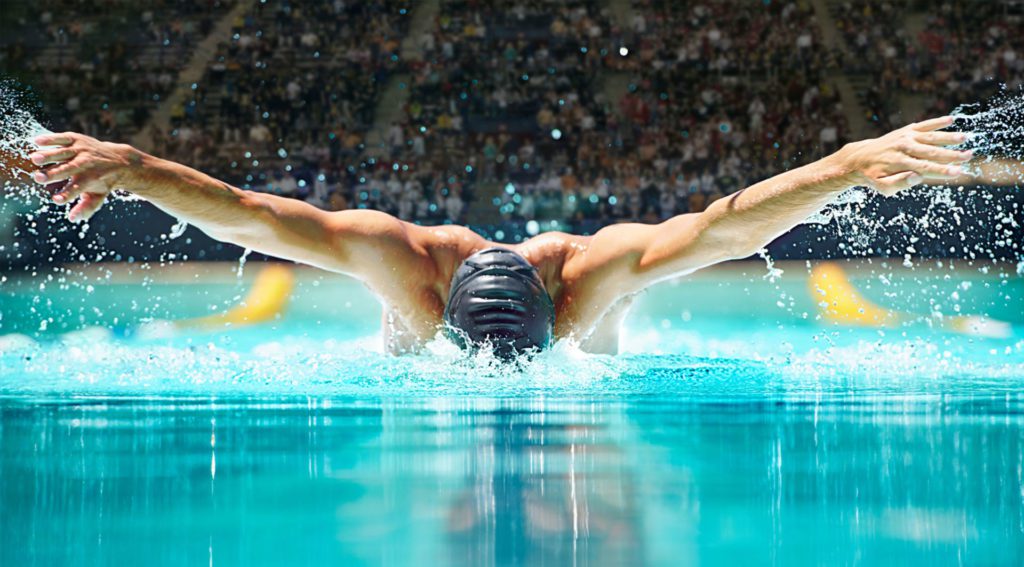
Explore Summer Games Packages
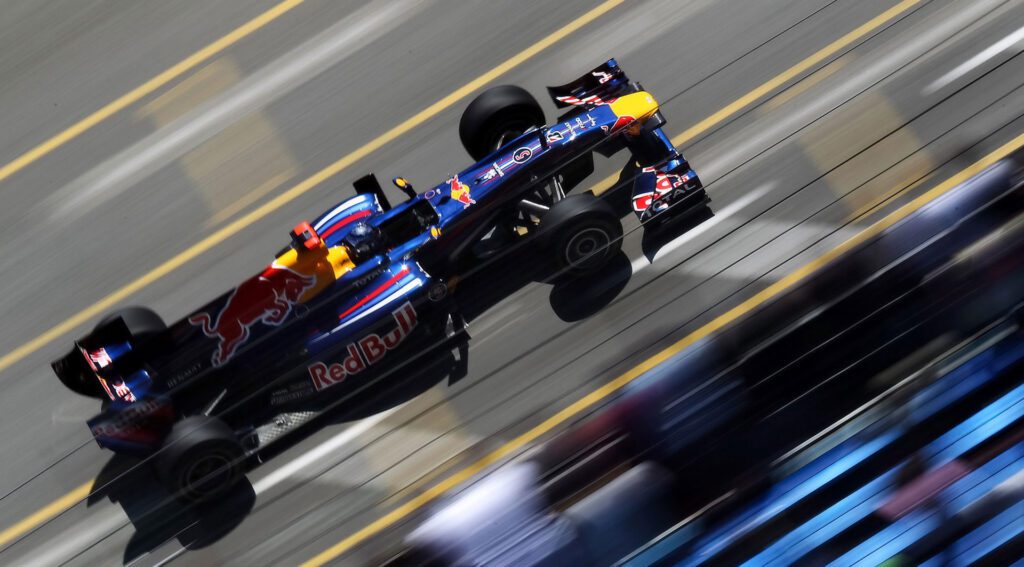
Explore Monaco Grand Prix Packages »
Featured Events

2025 Masters

Latest Blog Post View all >

March 12, 2024
30+ Things to Do in Louisville During the Kentucky Derby
The Kentucky Derby may be famously known as the fastest two minutes in sports, but this iconic annual event in Louisville is anything but fleeting. The race itself may be the pinnacle moment, but the Kentucky Derby Festival begins two weeks before the horses line up with their jockeys on the […]
Read full article »

November 3, 2023
The Most Watched Sporting Events in The World

October 12, 2023
Things to do in Paris During the 2024 Summer Games
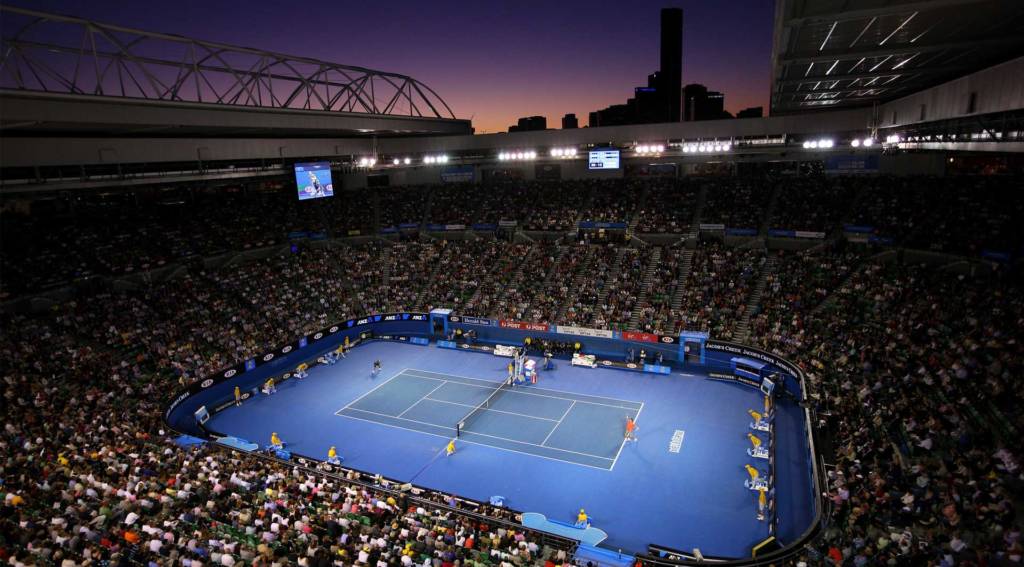
July 5, 2023
9 Best Major Tennis Tournaments
Sign up to our newsletter.
Subscribe to Roadtrips News, our free monthly email newsletter, to be the first to receive the latest sports travel information and special deals. You can withdraw your consent at any time. If you have any questions, please contact us or refer to our privacy policy .

25 Best Sports Travel Companies and Packages Tour Operators Worldwide
Last Updated on May 11, 2023
On this page, you will find 50 of the best sports tourism and sports travel providers in the world. If there is a company that is missing that you feel we should add, please feel free to contact me .

Table of Contents
1. Sportsnet Holidays, Australia
An Australian-based company that provides tickets, accommodation, and packages for sports events worldwide.
Sportnet includes a focus on Aussie events such as the Australian Open Tennis and the Melbourne Cup horse racing.
Visit SportsNet Holidays
2. MVP Travel, UK
As a subsidiary of Hays Travel, MVP Travel are a UK-based company that organises trips to some of the world’s best sporting events including:
- Indianapolis 500
- US Open Golf
Visit the site of MVP Travel .
3. SportsTravelandTours, USA
Sportstravelandtours.com is one of the leading U.S.-based companies providing tickets and packages to major events.
Whilst they have a heavy focus on U.S. sports such as basketball, baseball, and rodeo, they also provide tours for tennis, soccer, hockey and motor racing.
Visit sportsandtraveltours.com here.
4. Roadtrips.com, USA
Another U.S. based company that is worth looking at are Roadtrips.com
Roadtrips focus more on the luxury side of sports travel and events and provide a more bespoke service than some sports tickets and tour providers.
They also focus more so on the major events including the summer and winter Olympics, the Kentucky Derby, the MLC All-star game, and the major F1 races and soccer tournaments.
Visit Roadtrips.com here.
5. Elitesportstours, Canada
If you are Canadian-based, you might wish to take a look at ‘Elite Sports Tours’. EST offers sports travel packages to Major League Baseball (MLB) games, NBA basketball, and Major League baseball games.
So, if you are Canadian and looking to travel to the U.S. to experience one of the major U.S. sports, EST is worth looking at.
Visit Elitesportstours.ca here.

6. BAC Sport Limited, England
BAC is a London, England, based sports and hospitality provider, and they’ve been in business for over 25 years and made a good name for themselves.
As a British company, BAC offers packages for Commonwealth sports such as rugby and cricket. They also deal with all of the Formula One Grand Prix, golf, and tennis.
More on BAC Sport here.
7. Victory Sports Tours, USA
Based in Massachusetts, USA, Victory Sports Tours is a little different from the aforementioned companies in that they focus on helping sports teams to tour.
So, if you are a school, college, or university sports team, Victory can work to organize a tour for you within the States, or to more regions of the world.
They organize the travel, matches versus local sides at the places you visit (if needed), and cultural excursions for the tour group.
You can find Victory Sports Tours website here and they are also on Facebook .
8. Fanatic Sports, India
Fanatic Sports are based in Mumbai, India, and they are a sports tour operator that is heavily involved with sports such as cricket, tennis, F1, rugby, and golf.
They focus on hospitality and have offices also in Singapore, UAE, and Canada.
You can find Fanatic Sports here or on Twitter .
9. Spectate Travel, UK
Based in Chester, England, ITC has been organizing tailor-made sports trips for over 35 years and they are very good for cricket and rugby packages, as well as many of the major horse racing events (such as the Dubai World Cup and the Breeders Cup).
They also provide packages for F1 trips and the Ryder Cup.
Find Spectate Travel here .

10. Sporta Tours, U.S.
Similar to Victory Sport in the U.S., this sports travel agency based in Jaipur, India, organizes sporting trips for teams from schools, clubs, universities, colleges, and professional clubs, to visit several locations worldwide.
Sporta has been organizing tailor-made trips since 2006, having originally focused on cricket. Now though they organize trips worldwide for some major sporting bodies.
You can find Sports Tours here on Facebook .

11. Sportsbreaks.com, UK
‘Sports Break’ is a Manchester, UK, based company that provides packages that include tickets, travel, and hotel.
Few of the other providers we have so far mentioned have a heavy focus on football (soccer) but sportsbreak.com offers packages to many games for many of the leading European clubs, including Manchester United/City, Real Madrid, Liverpool, Chelsea, Rangers, and Benfica.
They also offer packaged trips to see tennis, cricket, darts, and a few other events.
You can find Sportsbreak.com here.
12. Sportstravelinternational.com, Ireland
As one of Ireland’s leading sports travel and package companies, ‘Sports Travel International’ are quite distinct from all of the aforementioned companies.
They are especially good for runners , i.e if you want to enter one of the main marathons around the world. This includes the Petra Desert Marathon, triathlon, and cycling events are focused on.
So, if you are interested in running, cycling, or triathlons then they are especially good.
You can find the site of SportsTravelInternational.com here .
13. Go Sport Travel, Sweden
Based in Örnsköldsvik, Sweden, ‘Go Sport’ is particularly adept at putting sporting travel packages together for Premiership football games, especially for the Scandinavian market.
They do also though provide tickets and travel for other major events, including the golf majors and for gold breaks.
You can visit the site of Go Sport Travel here .
14. VenaTour
Based in Cheltenham, England, VenaTour is a specialist in rugby tours to see the major rugby events.
If you need tickets to events such as the Rugby World Cup, 6 Nations, the Dubai Sevens, or the British Lions tour, VenaTour is certainly worth checking.
Visit VenaTour here .
15. Ski Solutions, UK
Turning to winter sports, an excellent company in the UK that specializes specifically in skiing is ‘Ski Solutions’.
Based in London, England, ski solutions are experts in providing ski packages to Austria, France, Switzerland, the USA, and about a dozen countries in all.
In addition to ski trips, they also provide snowboarding holidays and trips.
You can learn more about Ski Solutions here .
16. Bike Adventures, UK
For cycling and mountain biking experiences, BikeAdventures.co.uk is an excellent and well-established company and is UK-based.
They organize cycle trips worldwide including Asia, Europe, and North America.
You can find Bike Adventures here .
17. EDUSport, South Africa
EduSport is one of South Africa’s leading agencies dealing with sporting holidays, breaks, and tickets.
As a country in which rugby and cricket are particularly popular sports, you might not be surprised to learn that EduSport is a specialist in providing tickets and travel for the rugby world cups and major cricket events.
What I like about EDUSport though is that they provide participant sports opportunities for you if you are looking for yourself to get involved, such as with cycling, golf , hiking, and running.
Can visit EduSport here .
18. St. Thomas Water Sports, Virgin Islands
Watersports SVI (St.Thomas Virgin Islands) provides a range of water sports and activities for travelers to the stunning island of St.Thomas in the Caribbean Ocean.
Some options include:
- Nighttime kayaking
- Sunset sailing trips
You can learn more here .
19. Lion Sports Travel, England
Given the name of the company, it might be a giver away that Lion Sports focus on the British Lions (rugby) and other rugby international and tournaments.
Lion provides sporting tickets and travel packages also for major international cricket, netball, basketball., hockey, and golf.
A major part of their focus is on South Africa, Singapore, India, Barbados, Dubai, and Sri Lanka.
Here’s the Lion Sports official website .
20. Ama Travel, Canada
Ama Travel is a sports vacation company that is based in Canada
Whilst not specifically a sports vacation provider, their mountain and ski vacation packages in the Rocky Mountains are worth checking.
You can find Ama Travel here .
21. Alliance Sports Travel, USA
If you are looking for sports tickets and travel packages for major U.S. sports, Alliance is a great option.
Alliance focus on college-level sports and helps college sports team to organize their own package to travel and play other teams in the U.S.
Learn more about Alliance here .
22. Florida First Sports
Whilst they also provide non-sporting travel and vacation, Florida First has a sports holiday division that provides services that include:
- diving trips
- water-skiing
- tennis academies
- biking vacations
- NFL tickets for the Florida-based teams (the Dolphins, Buccanneers, and the Jaguars).
- Tickets also for the pro baseball, basketball, and soccer matches that take place in the state, such as for Inter Miami .
Learn more about the Florida First Sporting options .
23. Sportstravelinc, USA
Group sports travel is the focus of the Texan-based company SportsTravelInc.
They organize sporting trips for school, youth, and college groups, i.e. team travel trips. They also organize group sporting trips for adults.
You can discover more on Sports Travel Inc here .
24. Williment, New Zealand
Being New Zealand-based, Williment understandably has a high focus on organizing trips to NZ sporting events.
If you are interested, for example, in tickets and packages to see the top NRL (New Zealand Rugby League) games, the Repco Bathurst 1000 (Supercars event), or one of the F1 races, Williment is worth checking.
More on Williment here .
25. Sporting Holiday Group, UK
The ‘Sporting Holiday Group’ is a small UK business run by Ben Clubley and Max Alvy and they focus mostly on European-based sporting events and travel.
Their business is backed by ABTA and you can learn more about them here .
The form you have selected does not exist.
Related posts:

Hi there! I’m Paul and I’m the owner of Symonds Sports. I’m a sports fanatic who travels worldwide to see major sports events and I love seeing & trying sports in different countries. Thank you for visiting this site. More on me here..
Recent Posts

Disclosure: This page may contain affiliate links.

Winter is here! Check out the winter wonderlands at these 5 amazing winter destinations in Montana
- Travel Tips
What Is Sport Tourism
Published: December 12, 2023
Modified: December 28, 2023
by Donnamarie Chaudhry
- Travel Guide
Introduction
Welcome to the exciting world of sport tourism! Whether you are a sports enthusiast looking to combine your love for sports with travel, or a travel lover seeking unique experiences, sport tourism is the perfect blend of these two passions. This emerging trend in the travel industry has gained immense popularity in recent years, attracting millions of tourists worldwide.
Sport tourism refers to the act of traveling to different destinations to witness or participate in various sporting events. It offers a wonderful opportunity for individuals to explore different cultures, interact with fellow sports fans, and engage in thrilling sports activities. From cheering on your favorite team at a major sporting event to embarking on an adventure-filled skiing trip, sport tourism offers a wide range of experiences for travelers of all ages and interests.
The concept of sport tourism has evolved significantly over time. In the past, sports events predominantly attracted local spectators, but now they have become international spectacles that draw crowds from all corners of the globe. With the advancements in transportation, communication, and media coverage, sports events have transcended geographical boundaries, turning into global phenomena.
Sport tourism can be classified into different types, including spectator sport tourism, active sport tourism, and event sport tourism. Each type offers a unique experience and caters to different preferences. Whether you want to watch a thrilling football match at a renowned stadium, participate in a marathon in an exotic location, or witness a world championship in your favorite sport, there is sport tourism option for everyone.
One of the main reasons behind the popularity of sport tourism is the countless benefits it brings to both the travelers and the destinations. For travelers, it provides an opportunity to indulge in their passion for sports, create lifelong memories, and explore new destinations. On the other hand, sport tourism injects significant economic benefits into the host destinations, boosting local businesses, supporting job creation, and showcasing the cultural heritage of the region.
However, like any other industry, sport tourism also faces its own set of challenges. Sustainable management of sports events, infrastructure development, and maintaining the balance between tourism and the environment are just a few of the challenges that need to be addressed. Nevertheless, the potential and growth of sport tourism make it an exciting and promising niche in the travel industry.
In the following sections, we will explore the different types of sport tourism, delve into the benefits and challenges it presents, and highlight some of the major sport tourism destinations around the world. So, tighten your shoelaces, put on your favorite team jersey, and join us on this thrilling journey through the world of sport tourism.
Definition of Sport Tourism
Sport tourism can be defined as the intersection of sports and travel, where individuals travel to different destinations to either participate in or spectate various sporting events. It encompasses a wide array of activities, ranging from attending major sporting events like the Olympics, FIFA World Cup, or Wimbledon, to engaging in sports-related adventures such as skiing, golfing, surfing, or trekking.
At its core, sport tourism revolves around the passion for sports and the desire to explore new destinations. It provides a platform for sports enthusiasts to immerse themselves in the excitement and energy of sporting events while also experiencing the cultural, social, and natural aspects of the host location.
There are several key elements that contribute to the essence of sport tourism:
- Sports Events: Sport tourism revolves around participating in or spectating various sports events. These events can range from local tournaments to international championships, drawing participants and spectators from around the world.
- Destination: Sport tourism involves traveling to different destinations to engage in sports-related activities. These destinations can be renowned sporting cities, such as Barcelona or Rio de Janeiro, or even remote locations famous for specific sports, like Chamonix for skiing or Hawaii for surfing.
- Cultural Exchange: Sport tourism provides an opportunity for individuals to immerse themselves in different cultures and interact with fellow sports enthusiasts from diverse backgrounds. It allows for the exchange of ideas, traditions, and experiences, creating memorable and enriching encounters.
- Adventure and Recreation: Sport tourism is not limited to watching or participating in sports events but also includes engaging in adventure sports and recreational activities. This can involve adrenaline-filled adventures like bungee jumping, white-water rafting, or rock climbing, as well as more leisurely activities like golfing or fishing.
- Social Connection: Sport has a unique ability to bring people together, fostering camaraderie, and building social bonds. Sport tourism provides a platform for individuals to connect with like-minded individuals who share a common passion for sports.
Overall, sport tourism offers unforgettable experiences for both participants and spectators. It combines the excitement of sports with the allure of travel, providing a holistic and immersive experience that is sure to leave a lasting impression. Whether you are showcasing your skills on the field, cheering for your favorite team, or exploring new destinations through sports-related adventures, sport tourism is a remarkable way to combine two passions into one extraordinary journey.
Evolution of Sport Tourism
The evolution of sport tourism can be traced back to ancient times, where sports events and competitions were held as a form of entertainment and cultural expression. Ancient civilizations such as the Greeks and Romans organized athletic competitions, including the Olympic Games and the Gladiator Games, which attracted spectators from far and wide.
However, sport tourism as we know it today began to take shape in the early 20th century. With advancements in transportation and communication, sports events started to attract larger audiences, including travelers from different regions. The creation of international sporting organizations like FIFA and the International Olympic Committee further accelerated the globalization of sports and the rise of sport tourism.
The advent of mass media, particularly television and later the internet, played a vital role in the growth of sport tourism. Broadcast coverage allowed fans worldwide to witness sporting events in real-time, creating a sense of excitement and engagement. Viewers became inspired to experience the thrill of live events for themselves, leading to an increase in tourism related to sports.
In the latter part of the 20th century, sport tourism began to diversify, with a wide range of sports events and activities catering to different interests. Traditional sports such as football, basketball, and tennis continued to attract large crowds, while niche sports like surfing, extreme sports, and endurance races gained popularity among adventurous travelers seeking unique experiences.
The hosting of major global sporting events became a catalyst for the growth of sport tourism. Events like the Olympic Games, FIFA World Cup, Rugby World Cup, and Formula One races bring together athletes and fans from around the world, creating a surge in tourism and economic opportunities for the host cities and countries.
As the concept of wellness and health promotion gained traction, sports-related activities focused on well-being and fitness became an integral part of sport tourism. People now seek destinations that offer opportunities to engage in activities like yoga retreats, hiking, cycling, and golf, combining physical activity with leisure and relaxation.
Technology has also played a significant role in shaping the evolution of sport tourism. Online ticketing platforms, travel booking websites, and social media have made it easier for sports fans to plan and book their sport-related trips. These platforms provide information about upcoming events, accommodations, transport options, and even connect fans with like-minded individuals.
In recent years, there has been a growing emphasis on sustainable sport tourism. Host cities and event organizers are now focusing on minimizing environmental impact, promoting local culture and heritage, and investing in community development. This responsible approach ensures that sport tourism contributes to the long-term well-being of both the destination and its residents.
Overall, the evolution of sport tourism has transformed the way people engage with sports and travel. From ancient athletic competitions to the globalization of sports events, and the rise of adventure and wellness-focused experiences, sport tourism continues to evolve and captivate the imagination of travelers worldwide.
Types of Sport Tourism
Sport tourism encompasses a wide variety of experiences, catering to different interests and preferences. Here are the main types of sport tourism:
- Spectator Sport Tourism: This type of sport tourism involves traveling to watch and cheer on athletes participating in various sports events. It can range from attending local matches or tournaments to witnessing major international championships like the Olympics, FIFA World Cup, or Wimbledon. Spectator sport tourism allows fans to experience the electrifying atmosphere of live sports while being immersed in the culture and excitement of the host destination.
- Active Sport Tourism: Active sport tourism is for those who prefer to participate in sports-related activities themselves. It offers opportunities to engage in physical activities such as skiing, snowboarding, surfing, hiking, golfing, cycling, and more. Active sport tourism allows travelers to explore destinations while pursuing their favorite sports, embracing adventure, and enjoying the thrill of physical activity in picturesque surroundings.
- Event Sport Tourism: Event sport tourism revolves around attending specific sports events or tournaments. This can include international competitions, championships, marathons, motor races, and other sports-related events. Event sport tourism provides a chance for individuals to witness top athletes in action, experience the intensity of competition, and be part of the excitement surrounding these events.
- Health and Wellness Sport Tourism: This type of sport tourism focuses on activities that promote health, fitness, and well-being. It includes fitness retreats, yoga or meditation retreats, wellness resorts, and destinations that offer spa and wellness facilities. Health and wellness sport tourism provides a rejuvenating experience, combining physical activity with relaxation and self-care.
- Adventure Sport Tourism: Adventure sport tourism is for adrenaline junkies and thrill-seekers. It involves engaging in high-energy and extreme sports such as skydiving, bungee jumping, rock climbing, white-water rafting, and more. Travelers who enjoy adrenaline-packed experiences seek out destinations that offer adventure sports, providing an unforgettable and invigorating experience.
It’s important to note that these types of sport tourism are not mutually exclusive, and travelers may choose to engage in multiple types during a single trip. For example, attending a sporting event as a spectator and also participating in an active sport activity or exploring the health and wellness offerings in the host destination.
Each type of sport tourism offers its own unique experience, allowing travelers to fulfill their passion for sports while exploring new destinations and immersing themselves in the local culture. Whether you prefer the excitement of watching intense matches, the thrill of participating in physical activities, or the serenity of wellness-oriented experiences, there is a type of sport tourism to suit every traveler’s interests and preferences.
Benefits of Sport Tourism
Sport tourism brings a multitude of benefits, both for the travelers and the destinations, making it a compelling and rewarding experience for all involved. Here are some of the key benefits of sport tourism:
- Economic Impact: Sport tourism injects significant economic benefits into host destinations. Major sporting events attract large numbers of spectators, resulting in increased spending on accommodation, food and beverages, transportation, shopping, and local attractions. This boost in tourism expenditure stimulates local businesses, generates employment opportunities, and contributes to the overall economic growth of the host region.
- Community Development: Sport tourism has the potential to foster community development, especially in smaller or lesser-known destinations. Hosting sports events or attracting sports-related activities can revitalize local infrastructure, generate investment, and create job opportunities in sectors such as hospitality, event management, and transportation. Additionally, community involvement in sporting events can promote a sense of pride and unity among residents.
- Cultural Exchange: Sport tourism provides a platform for cultural exchange and interaction between travelers and local communities. Visitors have the opportunity to immerse themselves in the traditions, customs, and values of the host destination through sports-related experiences. This promotes cross-cultural understanding, enhances tolerance, and fosters a deeper appreciation for the diversity of the world we live in.
- Promotion of Active and Healthy Lifestyles: Engaging in sports and physical activities during sport tourism promotes an active and healthy lifestyle. Participating in sports events, adventure activities, or wellness-focused experiences encourages travelers to prioritize their physical and mental well-being. This can lead to long-term health benefits and inspire individuals to incorporate regular exercise into their everyday lives.
- Tourism Diversification: Sport tourism offers destinations an opportunity to diversify their tourism offerings. By hosting and promoting sports events or developing sports-related infrastructure, destinations can attract a different segment of travelers who may have specific interests and preferences. This diversification helps reduce reliance on conventional forms of tourism, allowing destinations to tap into a niche market and differentiate themselves from competitors.
- Promotion of Sustainability: Sustainable practices are increasingly being adopted in sport tourism. Host cities and event organizers are placing greater emphasis on minimizing environmental impact, promoting eco-friendly travel options, and supporting local communities. Sustainable sport tourism ensures that the natural and cultural heritage of a destination is preserved for future generations to enjoy.
In addition to these benefits, sport tourism also offers personal rewards for travelers. It allows sports enthusiasts to indulge in their passion, create lifelong memories, and experience the thrill of live events. It provides opportunities for personal growth, self-discovery, and a sense of accomplishment through challenge and adventure.
Whether it’s the economic boost for the host destination, the promotion of active lifestyles, the cultural exchange between travelers and locals, or the personal fulfillment of sports enthusiasts, sport tourism offers a myriad of benefits that make it an enticing and enriching experience for all involved.
Challenges in Sport Tourism
While sport tourism offers numerous benefits, it is not without its share of challenges. These challenges must be acknowledged and addressed to ensure the sustainability and success of sport tourism experiences. Here are some of the main challenges faced in sport tourism:
- Sustainable Event Management: Hosting large-scale sports events requires careful planning and sustainable management practices. This involves minimizing the environmental impact of events, ensuring efficient use of resources, and addressing waste management and pollution concerns. Event organizers must work closely with local authorities and stakeholders to implement sustainable practices and mitigate any adverse effects on the natural and cultural environment.
- Infrastructure Development: Hosting major sporting events typically requires substantial investment in infrastructure development. This includes the construction or renovation of stadiums, arenas, hotels, transportation networks, and other facilities necessary to accommodate participants and spectators. The challenge lies in balancing the need for infrastructure development with responsible and strategic planning to avoid overdevelopment or underutilization of resources after the event.
- Social Impact: The influx of tourists during sporting events can put a strain on local communities, especially in smaller destinations. Issues such as overcrowding, increased traffic congestion, noise pollution, and a sudden rise in demand for local services can negatively impact the quality of life for residents. It is crucial for destinations to carefully manage the social impact of sport tourism and ensure that the benefits are shared equitably among local communities.
- Financial Considerations: The cost of hosting major sporting events can be prohibitively high for some destinations. Initial investments in infrastructure, marketing, and event organization can be a considerable financial burden. Additionally, smaller destinations may struggle to attract sponsors or secure funding for hosting events. Prime consideration must be given to financial planning and ensuring the long-term viability and return on investment for host destinations.
- Legacy Planning: One of the challenges in sport tourism is ensuring a lasting legacy beyond the event itself. Host destinations must have a clear plan for utilizing sports facilities and infrastructure after the event concludes. Repurposing venues for other sports events, converting them into community assets, or integrating them into the broader tourism infrastructure are crucial to ensure sustainability and continued benefits for the local community.
- Balancing Tourism and Environment: With the rise in popularity of sport tourism, striking a balance between tourism and the protection of the environment becomes paramount. Ensuring that sports activities and events do not negatively impact sensitive ecosystems, wildlife habitats, or cultural heritage sites requires careful planning, regulations, and visitor education.
Addressing these challenges requires collaboration between governments, local communities, event organizers, and tourism stakeholders. Sustainable management practices, proactive planning, responsible tourism policies, and community engagement are vital to overcome these obstacles and maximize the positive impacts of sport tourism.
By acknowledging and addressing these challenges, the potential of sport tourism can be harnessed to create sustainable and inclusive experiences that benefit both the host destination and the travelers who seek the excitement and joy that sports have to offer.
Major Sport Tourism Destinations
When it comes to sport tourism, there are numerous destinations around the world that attract travelers with their rich sports culture and offerings. These destinations are renowned for hosting major sporting events, offering world-class facilities, and providing unforgettable experiences. Here are some of the major sport tourism destinations:
- Barcelona, Spain: Barcelona is a hub for sport tourism, offering a diverse range of sporting experiences. It is home to FC Barcelona, one of the world’s most iconic football clubs, and has hosted major international events like the Olympic Games. Visitors can explore the magnificent Camp Nou stadium, visit the Olympic Park, or enjoy water sports along the city’s beautiful coastline.
- Melbourne, Australia: Melbourne is known as the sporting capital of Australia. It hosts renowned events like the Australian Open, Formula One Australian Grand Prix, and the Melbourne Cup horse race. The city boasts impressive sporting facilities, including the iconic Melbourne Cricket Ground (MCG), and offers opportunities for tennis, golf, surfing, and more.
- Rio de Janeiro, Brazil: Rio de Janeiro is famous for its vibrant sports culture and natural beauty. It hosted the 2016 Olympic Games and is home to iconic landmarks like the Maracanã Stadium, where football matches showcase the nation’s passion for the sport. Visitors can also enjoy beach volleyball, surfing, and hiking in the surrounding mountains.
- Aspen, Colorado, USA: Aspen is a premier destination for winter sports enthusiasts. It offers world-class ski resorts and facilities, attracting skiers and snowboarders from around the globe. The annual X Games, featuring extreme winter sports, also takes place in Aspen, adding to its appeal for adrenaline-seekers.
- Tokyo, Japan: Tokyo has a deep-rooted sports culture and will host the rescheduled 2020 Olympic Games. The city offers a range of sporting experiences, from watching sumo wrestling tournaments to attending baseball games or exploring modern sports facilities. Tokyo ensures a blend of tradition and innovation for sport tourism enthusiasts.
- Cape Town, South Africa: Cape Town is a paradise for adventure and water sports enthusiasts. With its stunning beaches and Table Mountain as a backdrop, the city offers activities such as surfing, kiteboarding, shark cage diving, and hiking. It also hosts the Cape Town Cycle Tour, attracting cyclists from around the world.
These destinations are just a glimpse of the countless sport tourism hotspots across the globe. Whether it’s the passion for football in Barcelona, the thrill of winter sports in Aspen, or the allure of the Olympic Games in Tokyo, each destination provides a unique and unforgettable experience for sports enthusiasts and travelers alike.
It’s important to note that sport tourism destinations are not limited to these examples alone. Countries like Italy, the United Kingdom, Brazil, South Africa, and New Zealand, to name a few, also offer a wealth of sporting opportunities, from football matches and rugby tournaments to cycling tours and adventure sports.
When planning your sport tourism adventure, consider exploring destinations that resonate with your favorite sports, cultural interests, and desire for new experiences. Whether you’re a spectator, active participant, or both, sport tourism destinations have something to offer for everyone, creating memories and connections that last a lifetime.
Future of Sport Tourism
The future of sport tourism looks promising, with several trends and developments set to shape this exciting industry. Here are some key factors that will influence the future of sport tourism:
- Technology Integration: Technology will continue to play a significant role in enhancing the sport tourism experience. Virtual reality (VR) and augmented reality (AR) technologies will enable fans to immerse themselves in virtual sports events and iconic stadiums, even when they are unable to attend physically. Digital platforms will provide personalized travel recommendations, seamless ticketing, and real-time event information, enhancing the overall convenience and accessibility for travelers.
- Sustainability and Responsibility: As sustainability becomes increasingly important in the travel industry, sport tourism will be no exception. Host destinations and event organizers will prioritize sustainable practices, focusing on reducing carbon footprints, promoting eco-friendly transportation options, and minimizing the environmental impact of sports events. Additionally, responsible tourism practices will ensure that the benefits of sport tourism are shared equitably among local communities and cultural heritage is respected.
- Emergence of New Sporting Events: New sporting events will continue to emerge, attracting both participants and spectators. Niche sports, unconventional competitions, and innovative formats will capture the attention of sports enthusiasts seeking unique experiences. The evolution of e-sports, for example, has already gained immense popularity, drawing large virtual and in-person audiences, and is expected to further expand in the realm of sport tourism.
- Health and Wellness Focus: The pursuit of health and wellness will remain a prominent aspect of sport tourism. Travelers seeking a balance between active leisure and well-being will focus on destinations that offer sports activities, fitness retreats, spa treatments, and mindfulness practices. The integration of wellness experiences with sporting events, such as yoga sessions during major marathons or wellness retreats near surfing hotspots, will create unique and rejuvenating sport tourism opportunities.
- Growth in Sports Tourism Infrastructure: The demand for sports-related infrastructure and facilities will continue to grow. Host destinations will invest in the development and enhancement of stadiums, arenas, training centers, and sports complexes to attract major sporting events and accommodate the increasing number of sports tourists. Adaptive reuse of existing facilities, eco-friendly design, and multifunctional spaces will be key considerations in future infrastructure development.
- Emerging Destinations: While traditional sport tourism destinations will remain popular, emerging destinations will increasingly attract sports enthusiasts seeking unique experiences. Smaller cities and countries with untapped potential will invest in sports infrastructure and marketing efforts to position themselves as attractive destinations for major sports events. This will provide travelers with opportunities to explore new frontiers and diversify their sport tourism experiences.
It’s important to note that while these trends and developments hold immense potential for the future of sport tourism, challenges such as infrastructure management, financial considerations, and maintaining the balance between tourism and the environment will need to be addressed. Sustainable planning, stakeholder collaboration, and responsible tourism practices will be crucial in ensuring the long-term success and positive impact of sport tourism.
Overall, the future of sport tourism is bright and dynamic. As technology advances, sustainability takes center stage, new events emerge, and health and wellness continue to be prioritized, sport tourism will continue to captivate travelers, offering extraordinary experiences that combine the love for sports with the exploration of new destinations.
Sport tourism is a dynamic and evolving niche within the travel industry, seamlessly combining the passion for sports with the excitement of travel. It offers a wide range of experiences for travelers of all interests and preferences, from spectating major sporting events to actively participating in adventurous activities. Throughout this article, we have explored the various aspects of sport tourism, including its definition, evolution, types, benefits, challenges, major destinations, and future trends.
Sport tourism has transformed over the years, from local competitions to global events that captivate millions of spectators and participants. This evolution has been facilitated by advancements in transportation, media coverage, and technology that have enabled sports to transcend geographical boundaries and connect sports enthusiasts from all corners of the globe.
The benefits of sport tourism are significant, both for travelers and the host destinations. It stimulates economic growth, creates employment opportunities, promotes cultural exchange, and encourages active lifestyles. Additionally, sport tourism provides travelers with unforgettable experiences, the chance to witness top athletes in action, and the opportunity to explore new destinations through a sports lens.
However, sport tourism also faces its fair share of challenges. Sustainable event management, community impact, financial considerations, and maintaining a balance with the environment are among the challenges that need to be addressed for the long-term success and sustainability of sport tourism.
Despite these challenges, the future of sport tourism is promising. Advancements in technology will enhance the sport tourism experience, sustainability practices will become the norm, and emerging destinations will attract a new wave of sports enthusiasts. The focus on health and wellness and the growth of unique sporting events will further diversify the sport tourism landscape.
In conclusion, sport tourism offers a remarkable blend of sports and travel, providing travelers with the opportunity to indulge in their passion, create lifelong memories, and explore the world. By addressing the challenges and embracing the trends that shape the industry, sport tourism can continue to thrive, offering enriching experiences that connect people, cultures, and destinations through the universal language of sports.

- Privacy Overview
- Strictly Necessary Cookies
This website uses cookies so that we can provide you with the best user experience possible. Cookie information is stored in your browser and performs functions such as recognising you when you return to our website and helping our team to understand which sections of the website you find most interesting and useful.
Strictly Necessary Cookie should be enabled at all times so that we can save your preferences for cookie settings.
If you disable this cookie, we will not be able to save your preferences. This means that every time you visit this website you will need to enable or disable cookies again.
How Sports Tourism Has Been Impacted by the Pandemic
Major sporting events have eliminated fan attendance, causing tourism to drop
:max_bytes(150000):strip_icc():format(webp)/StefanieWaldek-38071ba574ea46c2ac94e15fa18dc581.jpg)
People sit on a hill overlooking Dodger Stadium on what was supposed to be Major League Baseball's opening day, now postponed due to the coronavirus. (Mario Tama / Getty Images)
If you've tuned into watch any sporting events on TV lately, you might have caught a great game, but you also likely noticed something a bit off-kilter—like hearing the roar of a crowd when a baseball player hits a home run, despite a completely empty stadium, or seeing virtual fans on the sidelines of a basketball court. Although sporting events were temporarily paused in the early days of the pandemic, they’ve largely resumed, but typically without the crowds. And while the games can certainly go on without anyone watching them in-person, the lack of fans has decimated the sports tourism industry, affecting destinations that host tentpole sporting events, major league teams, and other sports-adjacent businesses.
“Sports have been held as recession-proof. During the 2008 recession, sports played a major role in getting tourism through to the other side,” said Sue Hollenbeck, director of sports business for Visit Oklahoma City. “But COVID-19 isn't a recession, and with everyone staying home, it doesn't matter if kids want to play or parents want them to play: there is nothing to play! This means no tax revenues for cities, convention and visitor bureaus (CVBs), and sports commissions.”
Here’s how the pandemic is impacting sports tourism across the United States.
Annual Sporting Events
For cities where sporting events have been canceled outright, the financial loss is substantial. Oklahoma City has seen not only the loss of its NBA team, the Oklahoma City Thunder, which is currently playing in a “bubble” at Walt Disney World in Florida, but also several marquee events, like the OKC Marathon and the NCAA Women's College World Series (WCWS). “The OKC Marathon was projected to have an economic impact of over $9 million for the one day race and three-day event,” said Hollenbeck. “That's $9 million that isn't being spent by visitors and locals in OKC hotels, restaurants and bars, attractions, rental cars, and locally purchased merchandise.” The cancellation of the WCWS hurt even more—that event was estimated to bring in $24 million to the city.
Other cities where marquee sporting events are still being held (whether on-time or postponed) have their own crisis to face: those events are happening without fans. The Kentucky Derby in Louisville, Kentucky , for instance, which has been pushed from May to September, originally planned to allow an audience of just 23,000 fans to watch the race in-person, only a tiny percentage of the usual 160,000-person crowd. But organizers have knocked that number down to zero after evaluating the current pandemic situation. Louisville Tourism, the city’s CVB, had previously estimated the economic impact of the Derby to be nearly $400 million—a staggering amount of money that will likely be lost due to the lack of fans visiting town.
Similarly, the Masters golf tournament, which is typically held in April in Augusta, Georgia, has been pushed to November—and will go on without any fans. “The tournament historically could be counted on to fill up metro area hotel rooms, currently 7,200,” said Eleanor Prater, marketing and communications manager of the Augusta Convention & Visitors Bureau. “Augusta collects an average of $1.4 million in hotel-motel tax revenues from the month of April, which is about three times higher than the average month.”
Both Louisville and Augusta, however, are hoping visitors will come to town anyway. “Restaurants are open at 50 percent capacity, and 80 percent of Louisville’s attractions have re-opened since the original COVID shutdown, including some popular Bourbon distilleries, the Muhammad Ali Center, Louisville Slugger Museum and Bat Factory, and the Frazier History Museum,” said Stacey Yates, vice president of marketing communications at Louisville Tourism.
In Indianapolis, the Indianapolis 500 car race, which typically brings in 300,000 fans and $300 million in economic impact, was pushed back from May to this past weekend. “With the Indy 500 being such a tradition for so many families, we have anecdotally heard of fans coming into the city, booking a hotel room, just so they can be in the most iconic race city in the world for the most iconic race, even if it means hearing the roar of the engines from outside the gate,” said Morgan Snyder, director of public relations at Visit Indy.
General Sports Tourism
Tentpole sporting events aren’t the only fuel for sports tourism: everything from regular-season major league games to sports museums draw tourists.
Currently, three of the four major sports leagues in the U.S.—baseball, hockey, and basketball—are playing without fans. (The National Football League is allowing individual teams to decide whether or not they’ll welcome fans when the season starts in a few weeks.) And in many neighborhoods with sports facilities, fans are the biggest source of revenue for shops and restaurants. “Local businesses that surround stadiums, arenas, and fields that cater to spectators are having major financial issues,” said Jay Smith, president of travel agency Sports Travel and Tours. “If they don't have outdoor capabilities and advertise something extra special, fans aren't going to the area to grab a bite to eat.”
In destinations that aren’t known for games, but rather sports-themed attractions, there’s still trouble. Take Cooperstown, for example—the village in Upstate New York is home to the National Baseball Hall of Fame, which sees more than 250,000 visitors annually. “Our museums are reopened, but they’re only allowed to have folks at 25 percent capacity,” said Cassandra Harrington, executive director of the Destination Marketing Corporation for Otsego County, which oversees Cooperstown. “In the last two weeks, we’re now reaching that capacity every day, so the Baseball Hall of Fame is obligated to turn people away. That’s been a little bit of a challenge since they’ve hit their limit at a point when revenue is most crucial.”
And that’s not to mention the town’s own tentpole events: the annual Hall of Fame Induction in July, which regularly draws 50,000 visitors to the village over the weekend, and a series of youth baseball tournaments throughout the summer.
But it’s not all bad news for every baseball destination. Ballparks of America in Branson, Missouri, a complex of two-thirds-sized replicas of Major League Baseball parks that hosts tournaments for youth players, has been faring quite well throughout the pandemic. “We had to alter a few things, but we have been doing robust business since May until now,” said Dan Shepherd, a publicist for the company. “Baseball can be managed safely, as it is an outdoor sport, the players in the field are spread out, and many people such as fans, parents, and coaches, wear masks and keep their distance in and around the dugouts.”
And even Cooperstown is able to tread water to an extent. “The bulk of our business is still coming from the New York City metro area, so we’re seeing a lot of people coming up for outdoor recreation. But they’re visiting our museums as a supplement to that, so it’s a shift in focus,” said Harrington. “We are a sports destination and we continue to be, but now it’s hiking, biking, and kayaking instead.”
Unfortunately the decline in sports tourism is just another part of the new pandemic normal. “People are willing to be patient and understand that changes in the name of safety are taking place this year,” said Shepherd. “Everyone is hopeful that next year there will be a greater return to normalcy.”
Hotels Across the World are Being Repurposed to Help Fight the Pandemic
The Top Travel and Outdoor Gear Trends of 2023
Is Thailand Ready to Reopen Its Borders to Tourists?
Everything You Need to Know About The Masters
11 Best Things to Do in Bricktown, Oklahoma City
The 15 Most Instagrammable Attractions in Chicago
How the U.S. Presidential Election Could Change Travel
What Is the Future of Couchsurfing?
Bali and Thailand Plan on Fully Reopening to Tourists by July
Phoenix Guide: Planning Your Trip
Best Inns, B&Bs and Boutiques
How the West Was Fun: What's Behind the Continued Rise Of the Western Getaway
How the U.S. Tourism Industry Is Staying Afloat—or Sinking—During COVID-19
The 9 Best Places to Buy Golf Clubs of 2024
20 Solo Trips in 2020: I Traveled Solo During COVID-19
13 Best Things to Do in Glendale, Arizona
Sports Tourist
Travelling Beyond Sport
2025 Australian Open

The 2025 Australian Open is the first of the four Grand Slam tournaments to be held in the professional tennis calendar. Held on hard courts Continue Reading
2027 Rugby World Cup

The 2027 Rugby World Cup is an international competition for national men’s rugby union teams, first held in 1987 and played every four years. Just Continue Reading
Top 5 books to read during the 2023 Rugby World Cup

The 2023 Rugby World Cup in France is well under way and we round up our Top 5 books to read during the competition; featuring a nostalgic read on Continue Reading
2023-2024 UEFA Europa League Group Stage Travel Guide

The draw for the 2023/2024 UEFA Europa League Group Stage has just been made with 32 teams starting on their road to the Final at Continue Reading
2023-2024 UEFA Champions League Group Stage Travel Guide

The draw for the 2023/2024 UEFA Champions League Group Stage has just been made with 32 teams starting on their road to the Final at Continue Reading
5 of the Biggest Sports Events in August 2023

We sum up 5 of the world’s biggest sports events you can catch in August 2023, with further detail on each of the highlighted events Continue Reading
2024 US Open

The 2024 US Open is a tennis tournament, first held in 1881 and the last of the four Grand Slam tournaments to be held in Continue Reading
2024 Tour de France

The most famous of professional cycling’s three Grand Tours, the 2024 Tour de France (Tour of France) is a 3 week long multiple-stage race held Continue Reading
5 of the Biggest Sports Events in July 2023

We sum up 5 of the world’s biggest sports events you can catch in July 2023, with further detail on each of the highlighted events Continue Reading
10 of the Biggest Sports Events in June 2023

We sum up 10 of the world’s biggest sports events you can catch in June 2023, with further detail on each of the highlighted events Continue Reading
Feefo Gold Trusted Service Award 2024

50 Years in the Game
The UK’s leading and longest-established sports tour operator. Gulliver’s extensive travel expertise, passion for sport and meticulous attention to detail ensure an unforgettable experience.
Watch an unmissable match in person, partake in the roaring crowd, and explore beautiful destinations. Experience it Live with Gullivers Sports Travel.
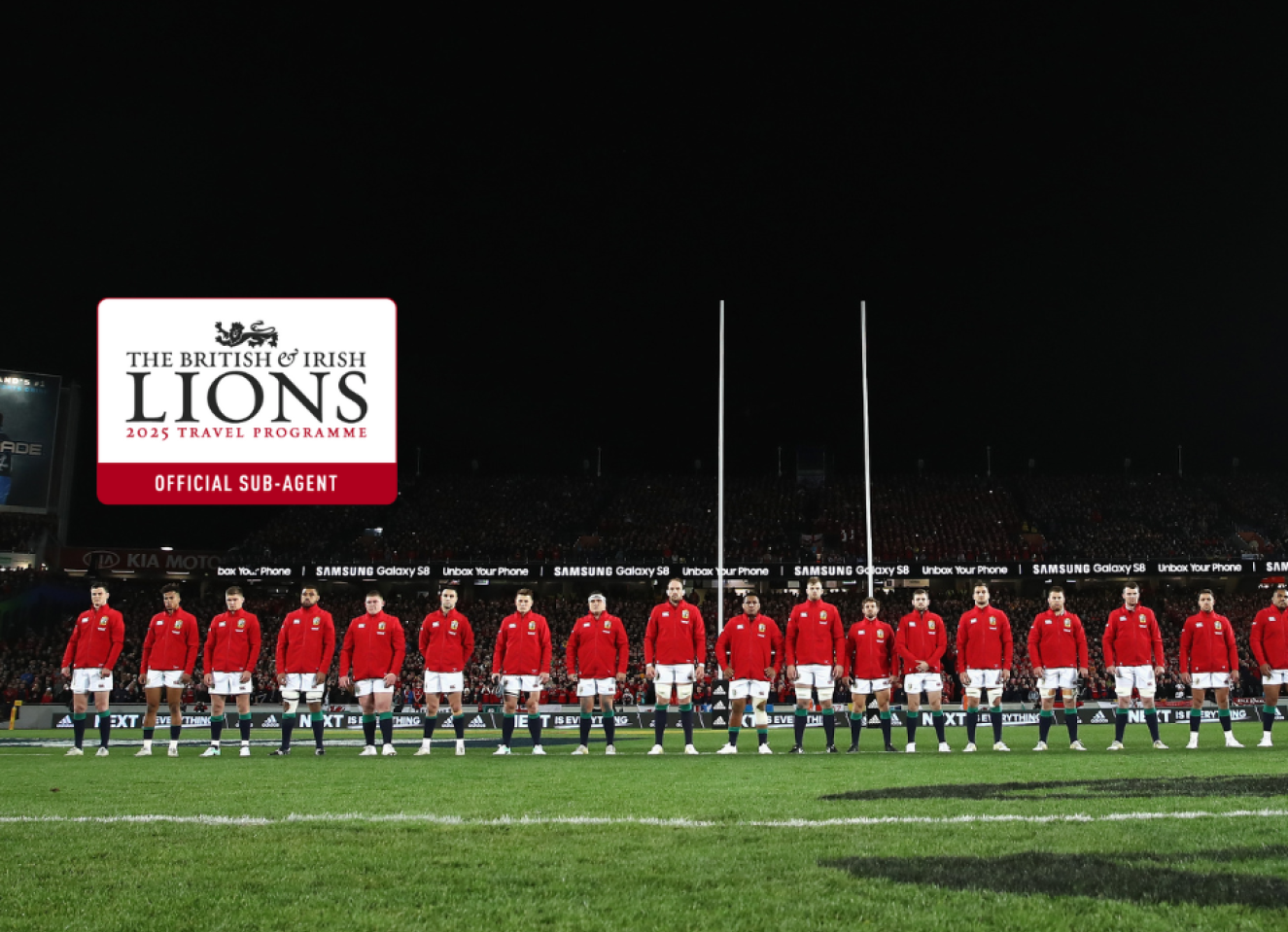
The British & Irish Lions Tour to Australia
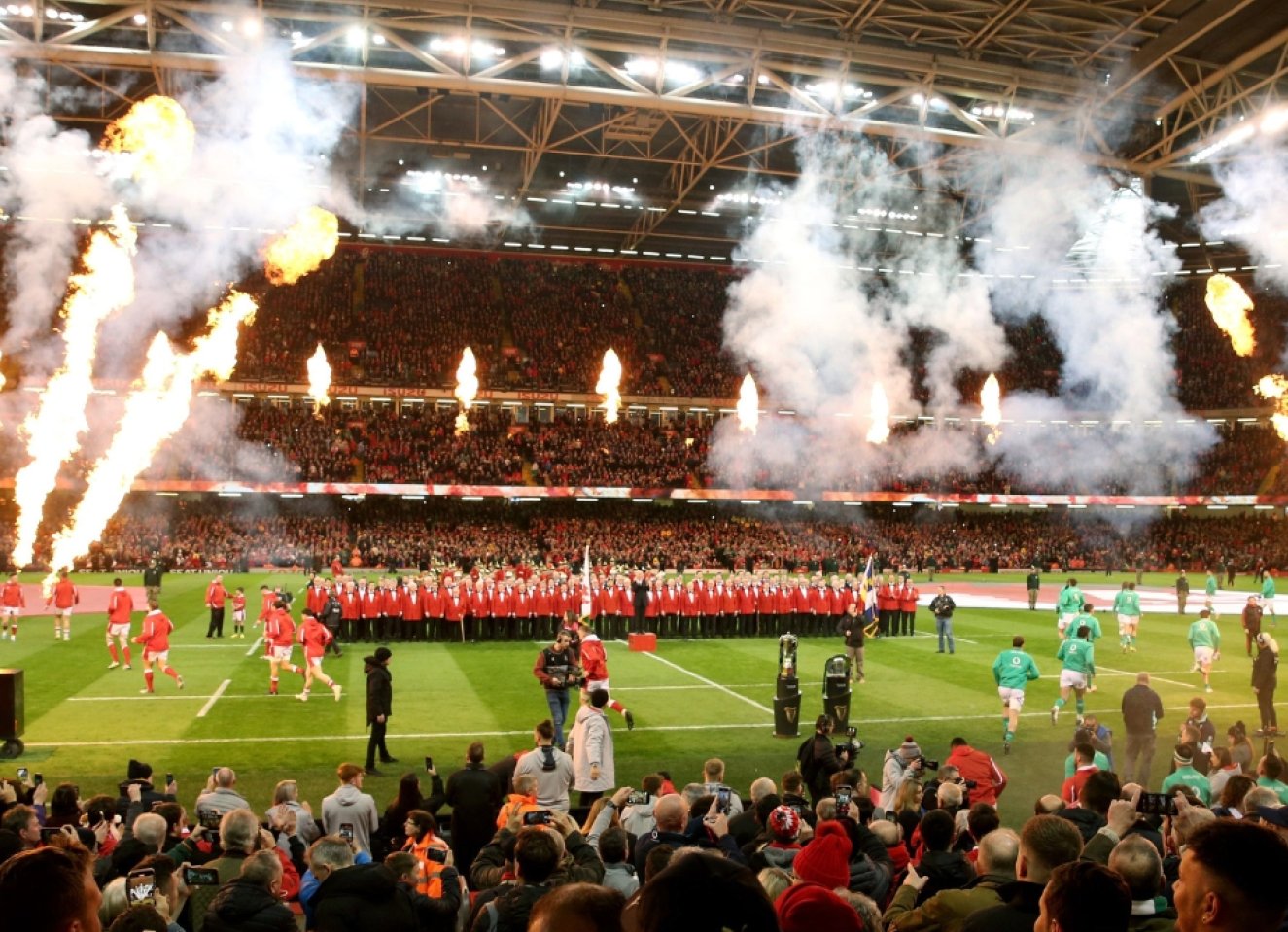
Six Nations
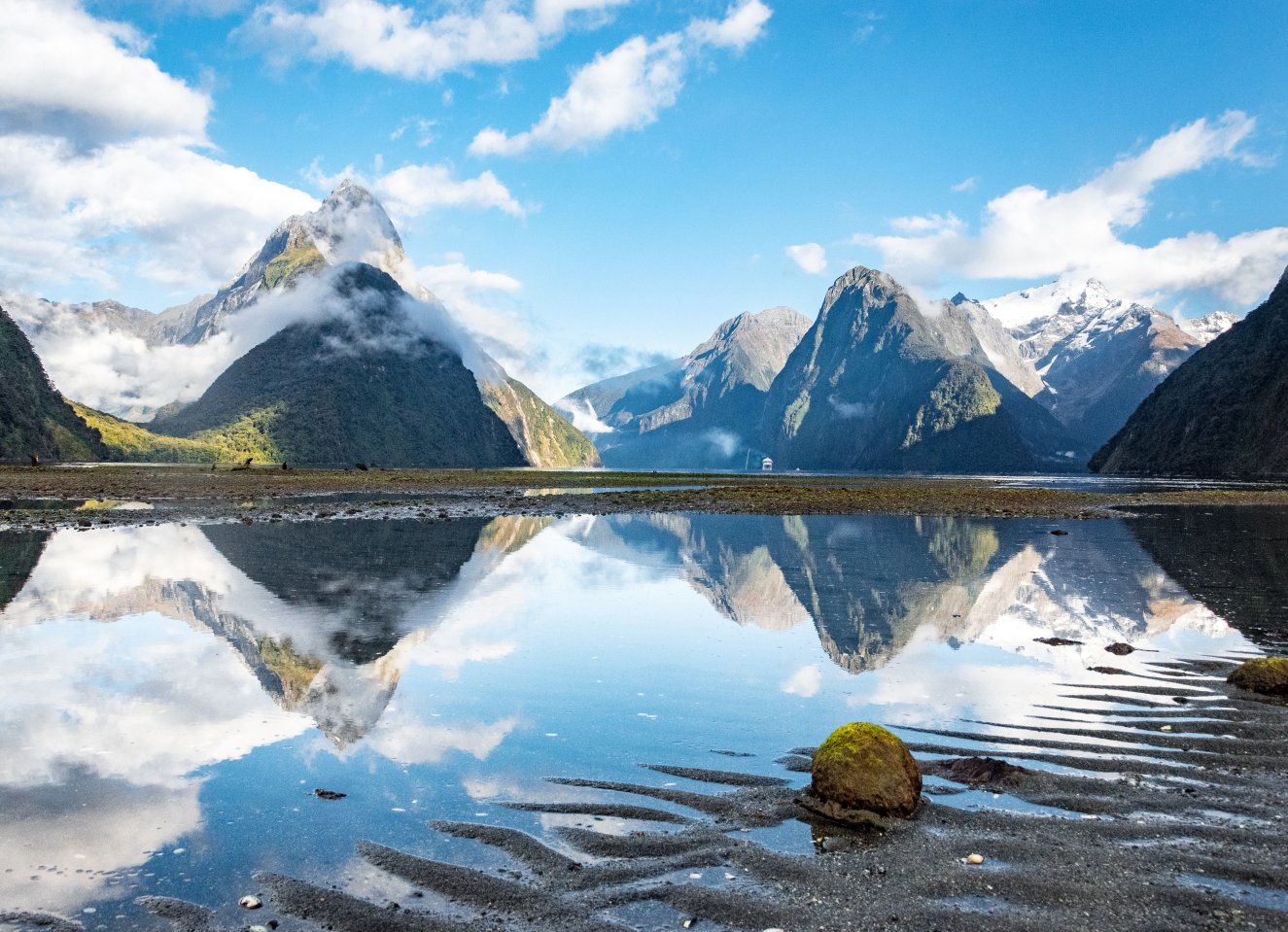
England Cricket Tour to New Zealand – Test Series
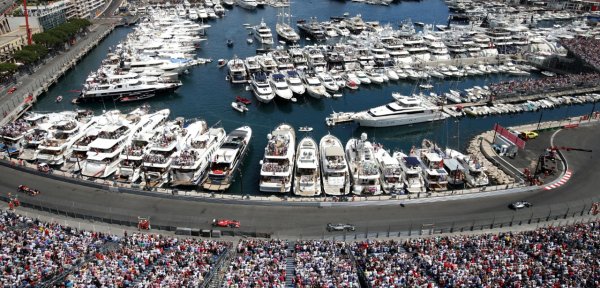
Monaco Grand Prix
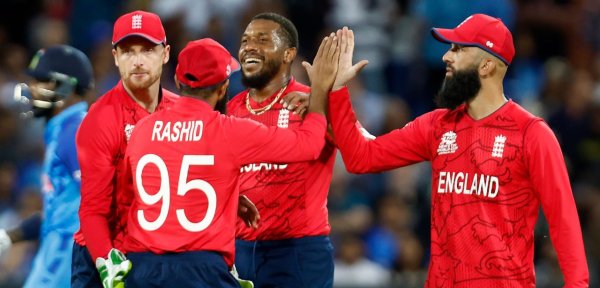
ICC Men's T20 World Cup – West Indies & USA
Spanish grand prix.
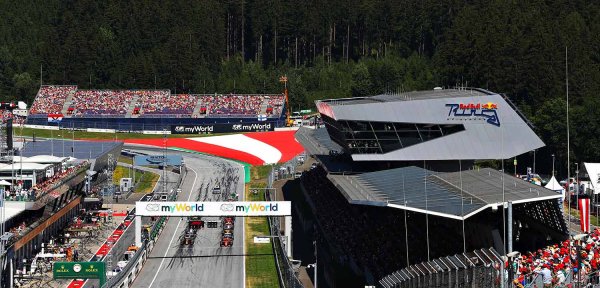
Austrian Grand Prix
British grand prix.
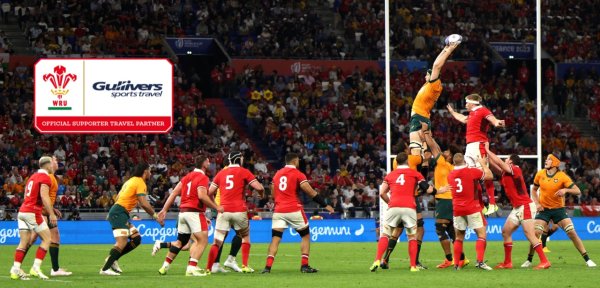
Wales Summer Tour
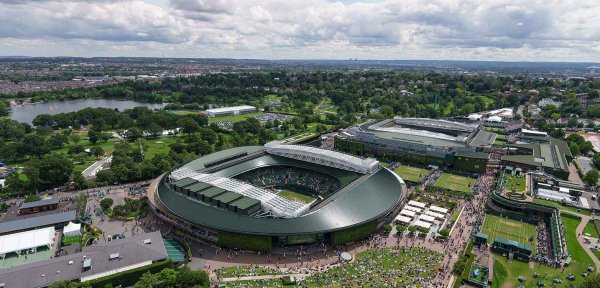
The Championships – Wimbledon
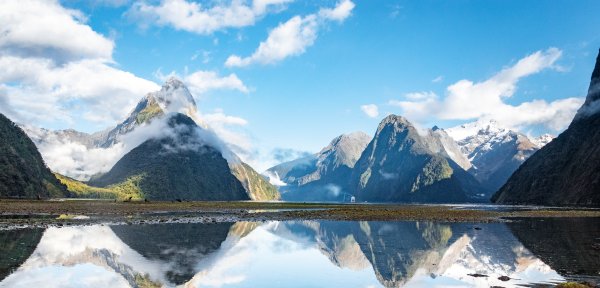
Why Gullivers?
Over 50 years in the game
Guaranteed tickets
A personal and friendly touch
Financial Security
What our customers say, our partners.


IMAGES
VIDEO
COMMENTS
What it is: Sports tourism is a type of tourism activity which refers to the travel experience of the tourist who either observes as a spectator or actively participates in a sporting event generally involving commercial and non-commercial activities of a competitive nature. Why it Matters: Sports tourism is a fundamental axis, generating ...
Sports tourism refers to travel which involves either observing or participating in a sporting event while staying apart from the tourists' usual environment. Sport tourism is a fast-growing sector of the global travel industry and equates to $7.68 billion.
Sports tourism is the act of travelling from one locality to another, with the intention of being in some way involved with a sporting activity or event. Many people believe that sports tourism relates only to watching a sporting event. However, this is not correct. The sports industry is much more than this.
Here we look at what sports tourism is and an expert's view on its impact… The United Nations's definition What UN Tourism said about sports tourism: " Sports tourism is a fundamental axis, generating around 10% of the world's expenditure on tourism. It has an estimated growth rate of 17.5% between 2023-2030, moving masses intra and ...
Sports ETA releases its "State of the Industry" Report for the $91.8 Billion Sport Tourism Industry. ... In 2021, sports-related travel generated 66.5 million room nights, which is an important factor given that hotel taxes are a primary funding source for many entities. View the 2021 State of the Industry Report. ### About Sports ETA:
In 2022, people do want to travel, including for sports tourism. The recent SEA Games in Hanoi is proof of that—it welcomed 700,000 domestic tourists and 31,447 international travelers.
Finally, sports tourism can also contribute to SDG 11 (make cities and human settlements inclusive, safe, resilient and sustainable. Accessible sports tourism products like hand bikes provide access to sports opportunities for people with disabilities. Para-sport activities can be enjoyed by tourists and residents alike.
Sports tourism is the act of travelling for the sake of either participating or viewing sports, and the management and marketing of sports to attract tourism for commercial means. Many definitions fail to give consideration to the perspective being looked at in sports tourism. These definitions fail to include, for example, how the term is ...
Luxury Sports Travel Package Specialists. Since 1992, Roadtrips has been providing completely customized luxury sports travel packages to the world's most sought-after and exclusive sporting events such as: 2024 US Open Tennis. 2024 MLB All-Star Game. 2025 Super Bowl.
Sports tourism generated $14.6 billion in tax revenues in 2019, with $6.8 billion accruing to state and local governments. Employment Generator A total of 739,386 jobs were sustained by sports tourism in 2019. This included 410,762 direct and 328,624 indirect and induced jobs. KEY FINDINGS The sports tourism sector is a driver of the U.S. economy
1. Sportsnet Holidays, Australia. An Australian-based company that provides tickets, accommodation, and packages for sports events worldwide. Sportnet includes a focus on Aussie events such as the Australian Open Tennis and the Melbourne Cup horse racing. Visit SportsNet Holidays.
At Sports Travel and Tours, we offer popular Baseball Road Trips and Tours, Spring Training packages, Hall of Fame Enshrinements, All Major Sporting Events Events and our Flexible Independent Travel (FIT) Vacations that are customized to meet your schedule and budget.
Sport tourism is a dynamic and evolving niche within the travel industry, seamlessly combining the passion for sports with the excitement of travel. It offers a wide range of experiences for travelers of all interests and preferences, from spectating major sporting events to actively participating in adventurous activities.
Sports tourism is all about the fusion of travel and the love for sports. It has come a long way over the years, evolving into a global phenomenon and a foundational pillar within the tourism industry. The rise of sporting events, economic impacts, state-of-the-art sports facilities, specialized travel packages, sports training camps, museums ...
Louisville Tourism, the city's CVB, had previously estimated the economic impact of the Derby to be nearly $400 million—a staggering amount of money that will likely be lost due to the lack of fans visiting town. Similarly, the Masters golf tournament, which is typically held in April in Augusta, Georgia, has been pushed to November—and ...
Definition of sport tourism. As defined by Gibson (1998, p. 49), sport tourism is a "leisurebased travel that takes individuals temporarily outside of their home communities to participate and/or watch physical activities or to venerate attractions associated with physical activities". Human beings are born to travel to fulfil their ...
2023-2024 UEFA Champions League Group Stage Travel Guide. Posted on August 31, 2023August 31, 2023 by Sports Tourist. The draw for the 2023/2024 UEFA Champions League Group Stage has just been made with 32 teams starting on their road to the Final at Continue Reading. Posted In Austria, Belgium, Denmark, England, Europe, Football, France ...
UK's leading sports tour operator - specialising in cricket, rugby, motorsport and golf supporter tours with guaranteed tickets, including Lions, Ashes, Six Nations, Ryder Cup, Hong Kong Sevens, England Rugby, Wales Rugby, Scotland Rugby, England Cricket Tours & Formula 1
Previous studies on sports tourism indicate that tourists' commitment to a destination, also known as destination loyalty, is an essential factor concerning the survival of the fittest and future success of a general or sporting destination (Jeong et al., 2019; Krishna & Schwarz, 2014; Lv et al., 2020).Building long-term relationships with tourists can be regarded as a less costly approach ...
By David Broughton 4.24.2024. Total direct spending associated with the sports travel sector was $52.2B and Americans took a record 204.9 million sports event-related trips in 2023, according to the State of the Industry Report that the Sports Events and Tourism Association (Sports ETA) is sharing with its more than 700 members today at the ...
Hulu has a Live TV Sports add-on feature where you can access channels that are often only found on cable—this add-on is an additional $10 to the $7.99 month subscription service.
He said: "The Tusker Lite Mt Rwenzori Marathon is important to tourism because it is a massive public relations event. This is because tourism runs on activations and events. First, it promotes ...
cial reasons and necessitating travel away from home. Sports tourism simply identifies tourism activities involving sports. It is the simple combination of both sport and tourism.
Sports and Activities in Moscow, Moscow - If you think that you have run out of things to do in Moscow you are wrong. The megalopolis offers various activiti...
Seeking a balanced and healthier lifestyle, all the more tourists are looking into wellness and recreation travel experiences particularly after the Covid pandemic, reveals data released this week by tourism intelligence provider Mabrian.. More specifically, Mabrian analysts report a shift from traditional relaxation to active wellness.Indicative of the trend, traveler demand for soft hiking ...
Founded in 2010 by Umang Malbari, the company became the leading provider of travel packages to businesses. ... "Sports tourism is a market that's going to continuously grow," he said.
1: Off-kilter genius at Delicatessen: Brain pâté with kefir butter and young radishes served mezze-style, and the caviar and tartare pizza. Head for Food City. You might think that calling Food City (Фуд Сити), an agriculture depot on the outskirts of Moscow, a "city" would be some kind of hyperbole. It is not.
You cannot resist our Two Hearts of Russia (7 Days &6 Nights), Golden Moscow (4 Days &3 Nights), Sochi (3 Days & 2 Nights), Golden Ring (1 Day & 2 Days), and many more. As a leading travel agency specializing in the tour to Russia and Former Soviet Republics, we are connecting the travellers from every part of the world for more than 10 years.
LUKLA, APRIL 28. Tourists in the Solukhumbu district have found themselves in distress as flight disruptions continue due to adverse weather conditions.
Venetian authorities last week launched a pilot program to charge day-trippers 5 euros ($5.35) apiece on peak travel days. The aim is to encourage them to stay longer or come at off-peak times to cut down on crowds and make the city more livable for its dwindling number of residents.